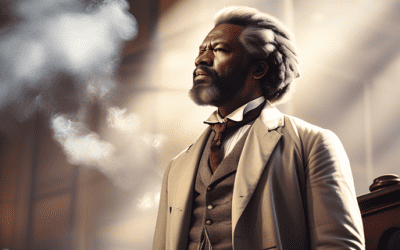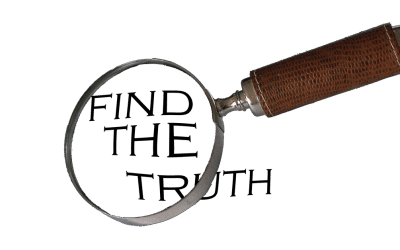By William H. Benson
The Parallel Lives
Of The NOBLE AMERICAN RELIGIOUS THINKERS AND BELIEVERS:
Roger Williams VS. Cotton Mathers
NEW ARTICLES
Internal Organs
John D. Ratcliff was one of the most prolific magazine writers in the United States throughout the twentieth-century. He contributed more than 200 articles just to Reader’s Digest. Of those, his best known was a set of 33 articles that he entitled, “I Am Joe’s Body.”
Each article was written from a first person viewpoint of an organ that explains its duty inside Joe’s body: “I Am Joe’s Liver,” “I Am Joe’s Heart,” “I Am Joe’s Lung,” “I Am Joe’s Pancreas.”
Joe’s heart says, “I’m certainly no beauty. I weigh 12 ounces, I am red-brown in color, and I have an unimpressive shape. I am the dedicated slave of Joe.”
Someone reported that this was “the most successful series ever printed in the history of Reader’s Digest. Over seven million reprints of these articles were sold.”
When a child in the early to mid-1960’s, I read several of those articles at my grandparent’s house. I found each interesting, but none convinced me to attempt medical school later.
In recent days, I came across a most unusual book, first published in 1967, and entitled, “You Are Extraordinary,” by Roger J. Williams, professor of biochemistry at the University of Texas from 1940 to 1963. In it, Williams describes the variety of internal organs within a human body.
Williams starts with a stomach. On page 24, he displays a sketch of a textbook stomach, but then offers a dozen more sketches of stomachs with differing sizes and shapes. He says, “The valve-like inlets and outlets to the stomach vary greatly in size, shape, and placement.
“They also vary in their operation: some stomachs empty rapidly into the intestine, some slowly. Some people vomit readily when their stomachs are upset; others almost never do.
“A Mayo Foundation study of the gastric juices of about five thousand people who had no known stomach ailment showed that the juices varied at least a thousandfold in their pepsin content, the medium that holds a concentration of hydrochloric acid.
“A percentage of normal people have no acid at all in their gastric juice,” an astonishing fact.
Then, the stomach’s position varies. Williams identified nine positions, from high up in the chest to far down in the abdomen.
Williams then turns to the tube that connects mouth to stomach. He says, “People eat with varying speeds due to the size of the esophagus through which food must pass.”
As for the heart, “it is found that the hearts of some healthy young men pump only three quarts of blood a minute, while others can pump four times this much. Then, a heart’s inner construction does not always follow a single pattern.”
Williams writes, “I had assumed that the piping system for carrying blood to all parts of the body was about the same in everyone. This is clearly untrue.”
For example, the branches that extend from the aorta and deliver blood to the neck and brain vary in number. “Some 65 percent of people have three branches, some 27 percent have two branches, and the remaining people have one, four, five or six branches.”
On page 36, Williams displays a chart showing twelve normal livers, but in the caption, he writes, “the total weight of these livers varies about fourfold.” Some are huge. Some are small.
Williams writes, “The endocrine glands—the thyroids, parathyroids, adrenals, pituitaries, and the pancreas—differ widely in normal individuals. For example, thyroid tissue varies in weight in ‘normal’ people from 8 to 50 grams.”
Each human being is a singular entity, an individual, “distinctive in our makeup.”
Williams addresses the reader in his book’s Preface, “You are not precisely like anyone else; you are not approximately like anyone else. You are a remarkable and extraordinary person.”
Whereas John D. Ratcliff described an internal organ in a general way, Roger J. Williams pointed out an organ’s widespread variations in structure.
Brown vs. Board of Education of Topeka, Kansas
In Topeka, Kansas, on February 20, 1943, a black girl named Linda Brown was born. When still a child in the early 1950’s, her father, Oliver Brown, was required to drive Linda to an all-black school five miles across Topeka, when an all-white school, the Sumner...
Memoirs and mothers
In 1995, the author David Pelzer’s book, “A Child Called It,” was first published. In it, he claimed that his mother beat him, starved him, terrorized him, and banished him to the garage, where he slept on a cot. Gruesome beyond words, the book sold 1.6 million copies in five years.
I read it then and thought throughout, “No mother would do that.”
In 1996, Frank McCourt’s book, “Angela’s Ashes: A Memoir,” was first published. In it, he listed his impressions as a child growing up in poverty-stricken
Thoughts on College Bowl and University Challenge
The quiz show, “College Bowl,” was first broadcast on radio in 1953, 71 years ago. The show transitioned to television in 1959 and stayed there until 1970. Its first host was Allen Ludden, the future husband of Betty White. He hosted the show until 1962 when he left...
4th Amendment: Sections 4 and 5
Two weeks ago in these pages, I looked at the second and third sections of the 14th Amendment. Today I continue with its two final sections, the fourth and the fifth. Section 4 clarifies which debts the U.S. Federal government will honor as valid. The first sentence...
4th Amendment: Sections 2 and 3
Last time in these pages I looked at Section 1 of the 14th Amendment. Today I continue. The last phrase in Section 1 of the 14th Amendment declares that no state can “deny to any person within its jurisdiction the equal protection of the law.” All races are equal...
14th Amendment, Section 1
In early 1866, the Joint Committee of Fifteen on Reconstruction in the 39th Congress wrestled with the idea that they must write a 14th Amendment to address certain issues: Who is a citizen? How does the country’s laws apply to former slaves and slave owners? Will...
Older Posts
Black History Month: Reconstruction, 1865-1866
In December of 1863, in the midst of the Civil War, President Abraham Lincoln suggested a plan to reinstate the seceded states back into the Union, his “Ten Percent Plan.”
He would permit each Confederate state to form a new state government after ten percent of the voters in a state took loyalty oaths to the Union and recognized the former slaves’ freedom.
Following Lincoln’s assassination on April 9, 1865, his successor, former Vice-President Andrew Johnson, decided to run with Lincoln’s Ten Percent Plan.
Throughout the summer and fall of 1866, the Southern states
Black History Month: Phillis Wheatley and Billy Lee
Two African-American slaves from the eighteenth century: Phillis Wheatley and William “Billy” Lee. The first a woman, the second a man. The first a poet, the second a valet. The two received their freedom from their respective owners, and they each knew George...
National Freedom Day and Black History Month
On Feb. 7, 1926, Carter G. Woodson, a professor of history, announced that he would celebrate and highlight for the first time ever a single week devoted to African-American history, and he called it “Negro History Week.”
He selected the second week in February because of its proximity to Abraham Lincoln and Frederick Douglass’s birthdays, Lincoln on Feb. 12, and Douglass on a day in February.
Frederick Douglass’ “Slaveholder’s Sermon”
On May 11, 2017, the newly-elected U.S. President, Donald Trump, issued an executive order to form a Presidential Advisory Commission on Election Integrity. He appointed Vice-President Mike Pence as chair, and Kansas State’s Secretary of State Kris Kobach as vice-chair.
Assertion is not evidence
On May 11, 2017, the newly-elected U.S. President, Donald Trump, issued an executive order to form a Presidential Advisory Commission on Election Integrity. He appointed Vice-President Mike Pence as chair, and Kansas State’s Secretary of State Kris Kobach as vice-chair.
Unique words in history
December 16 marked the 250th anniversary of the Boston Tea Party, when colonial Bostonians dressed as Mohawk Indians boarded three ships—Dartmouth, Eleanor, and Beaver—split open 340 chests filled with tea, and dumped their contents into Boston’s harbor.
This defiant act was directed as a protest against Parliament’s insistence that the consignees of the tea in the American colonies pay an import tax, to keep afloat the struggling British East India Company, which brought the tea to the colonists.
The colonists were angry. They paid taxes to their

One of University of Northern Colorado’s 2020 Honored Alumni
William H. Benson
Local has provided scholarships for history students for 15 years
A Sterling resident is among five alumni selected to be recognized this year by the University of Northern Colorado. Bill Benson is one of college’s 2020 Honored Alumni.
Each year UNC honors alumni in recognition for their outstanding contributions to the college, their profession and their community. This year’s honorees were to be recognized at an awards ceremony on March 27, but due to the COVID-19 outbreak that event has been cancelled. Instead UNC will recognize the honorees in the fall during homecoming Oct. 10 and 11……
Newspaper Columns
The Duodecimal System
For centuries, the ancient Romans calculated sums with their clunky numerals: I, V, X, L, C, D, and M; or one, five, ten, 50, 100, 500, and 1,000. They knew nothing better.
The Thirteenth Amendment
On Jan. 1, 1863, President Abraham Lincoln signed the Emancipation Proclamation, and by it, he declared that “all persons held as slaves” within the rebellious states “are and henceforward shall be free.” Lincoln’s Proclamation freed some 3.1 million slaves within the Confederacy.
The Fourteenth Amendment
After Congress and enough states ratified the thirteenth amendment that terminated slavery, Congress passed the Civil Rights Act of 1866. This law declared that “all people born in the United States are entitled to be citizens, without regard to race, color, or previous condition of slavery or involuntary servitude.” The Act equated birth to citizenship.
The New-York Packet and the Constitution
Jill Lepore, the Harvard historian, published her newest book a month ago, These Truths: A History of the United States. In a short introduction, she describes in detail the Oct. 30, 1787 edition of a semi-weekly newspaper, The New-York Packet.
Mr. Benson’s writings on the U.S. Constitution are a great addition to the South Platte Sentinel. Its inspiring to see the history of the highest laws of this country passed on to others.
– Richard Hogan
Mr. Benson, I cannot thank you enough for this scholarship. As a first-generation college student, the prospect of finding a way to afford college is a very daunting one. Thanks to your generous donation, my dream of attending UNC and continuing my success here is far more achievable
– Cedric Sage Nixon
Donec bibendum tortor non vestibulum dapibus. Cras id tempor risus. Curabitur eu dui pellentesque, pharetra purus viverra.
– Extra Times
FUTURE BOOKS
- Thomas Paine vs. George Whitefield
- Ralph Waldo Emerson vs. Joseph Smith
- William James vs. Mary Baker Eddy
- Mark Twain vs. Billy Graham
- Henry Louis Mencken vs. Jim Bakker











